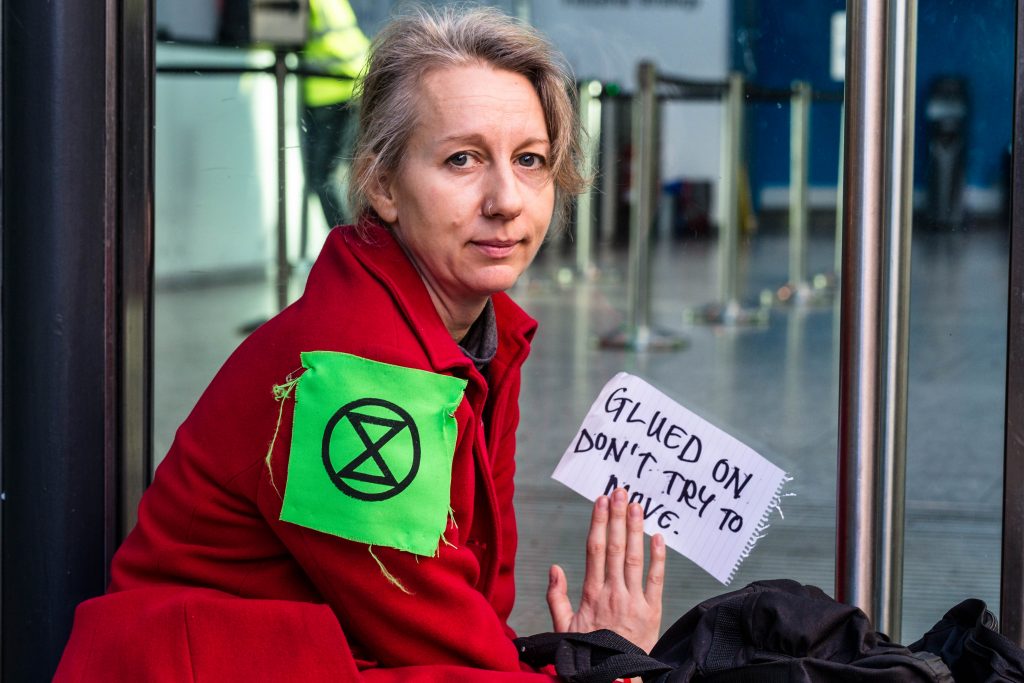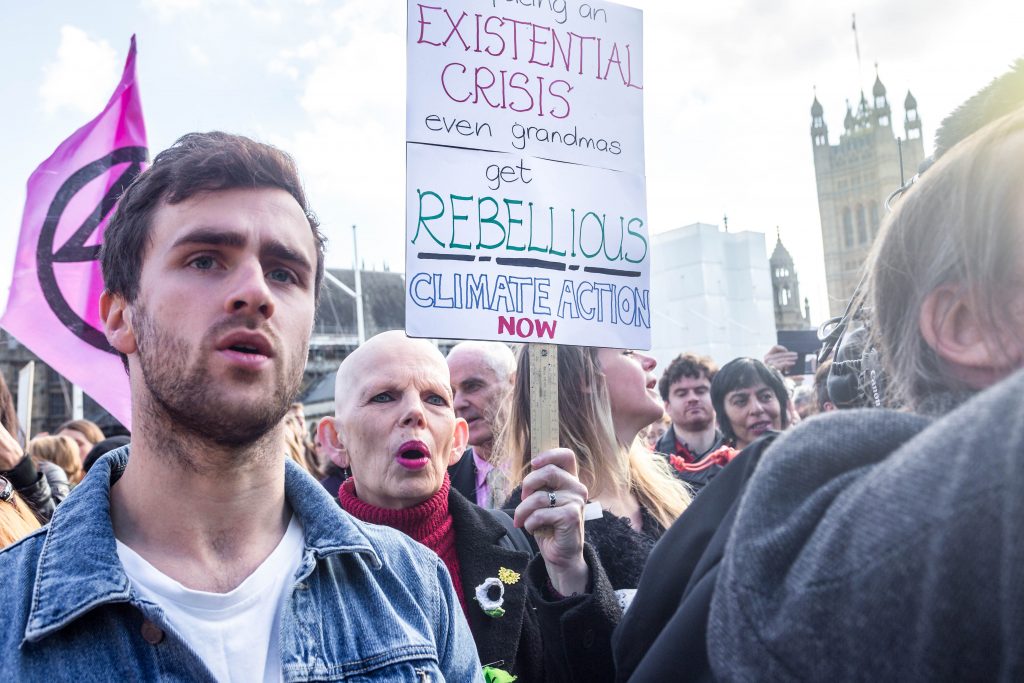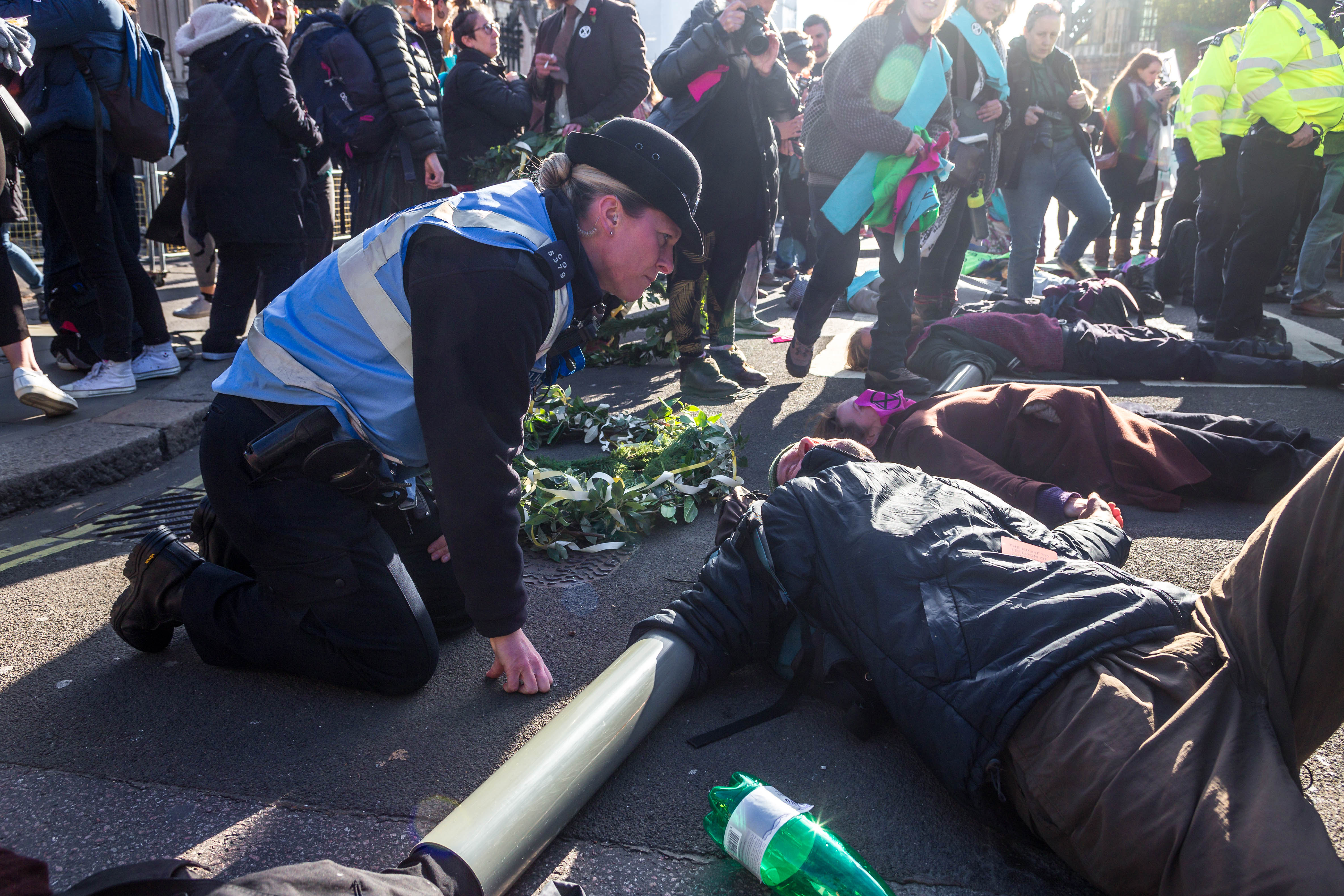Police have banned climate campaigners Extinction Rebellion (XR) from protesting in London, a move that human rights groups have condemned as “chilling”. What power does the police have to do this, and is it lawful? EachOther explores.
What Has Happened?

Image Credit: Thomas Katan.
Metropolitan Police officers announced late on Monday night (14 October) a city-wide ban on XR’s mass civil disobedience campaign under section 14 of the Public Order Act. It comes after protesters, who are in the second week of their ‘Autumn Uprising’, flouted an order made last week to confine their demonstrations to Trafalgar Square.
The pressure group says it has sent the Met a letter threatening legal action – a first step towards a judicial review.
More than 1,457 people have been arrested so far in connection with the uprising and it is clear that XR will continue in defiance of the ban, despite risking arrest. Gail Bradbrook, one of the organisations founders, led a protest at the Department for Transport this morning. “I do this in the spirit of what Emmeline Pankhurst called the noble art of window smashing,” she said.
The group has three demands: that the government “tell the truth” and declare an ecological climate emergency; that the government adopt a target of zero carbon by 2025; and for the creation of a citizens’ assembly to decide future policy on the environment.
What About The Right To Protest?
It is well established that the right to protest is protected by the Convention of Human Rights within Article 10 (freedom of expression) and Article 11 (freedom of association).
The banning on non-violent protest throughout London clearly infringes both of these rights. However, both rights are qualified – meaning states can take proportionate steps to curtail them when deemed necessary, to prevent crime or disorder among other reasons. The key question is whether the arrests satisfy this proportionality test.
Is This Lawful?

Image Credit: Thomas Katan.
The Met’s Deputy Assistant Commissioner Laurence Taylor justified the police ban on XR by citing “the continued breaches of the section 14 condition previously implemented, and ongoing serious disruption to the community.”
He added: “Since the beginning of this operation officers have been working hard to keep London moving. There have been more than 1,400 arrests, and a number of people have been charged. The policing operation continues, and we will continue to take action against anyone engaged in unlawful protests at locations targeted by Extinction Rebellion.”
But the move has been met with condemnation from MPs and human rights groups, among others.
Allan Hogarth, Head of Advocacy and Programmes at Amnesty International UK, said: “Imposing a blanket ban on Extinction Rebellion protests is an unlawful restriction on the rights to freedom of expression and peaceful assembly. Under UK and international human rights law, the government has an obligation to facilitate the exercise of these rights.”
She added: “The majority of those protesting have been doing so peacefully, removing and prosecuting activists for engaging in non-violent direct action to raise their voice is deeply worrying. Overly harsh and disproportionate charges will have a chilling effect on rights.”
The more I think about this, the more I think this will be overturned by the courts. It is so wide that it will capture any kind of XR assembly in London. Surely disproportionate to the (valid) aim of preventing commuter disruption
— Adam Wagner (@AdamWagner1) October 15, 2019
Taking to Twitter, human rights barrister Adam Wagner said he believes a court would likely overturn this section 14 order – considering it to be disproportionate.
Read more:
- Extinction Rebellion: ‘Preemptive Protests set dangerous precedent.’
- An Extinction Rebellion activist tells EachOther why the group is protesting in London.
- An opinion piece on why the climate crisis is a human rights issue.







